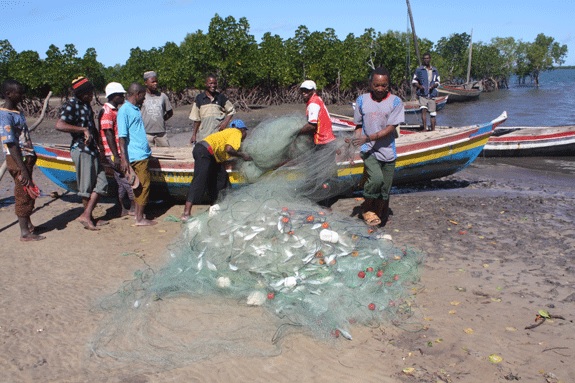Mozambique: Insurance company Emose sees profits soar to €5 million in 2024
Illegal fishing costs Mozambique millions of dollars

Noticias
Illegal fishing practiced by both Mozambican and foreign concerns is costing the state million of dollars in lost revenue. The fishing takes place both at sea and inland, with volumes ranging from individual to industrial.
So said Henriques Bongece, Deputy Minister of the Sea, Inland and Fisheries, at the opening ceremony in Maputo of a United Nations Food and Agriculture seminar on ways of improving the implementation of state and port control measures.
Deputy Minsiter Bongece said that inspections carried out in coordination with the navy and the police had made it possible in recent years to seize foreign vessels fishing illegally in Mozambican waters.
Illegal fishing is estimated to significantly reduce the economic and natural resources of the global economy and the maritime environment. Bongece added that its effects could be severe, particularly for developing and low income countries dependent on fishing activities.
“Considering illegal, unreported and unregulated fishing as a common enemy to be fought by all states, regardless of their geographical location, the FAO has been encouraging its members to adhere to this goal,” Bongece said.
Mozambique, a full member of the United Nations, adopted a resolution to incorporate the agreement into national legislation in 2010 and started implementation with meetings and preliminary inspections of fishing vessels in the main ports of Maputo, Beira and Nacala.
FAO representative Castro Camarada said that illegal fishing remained a threat to the conservation and efficient management of fishery resources worldwide, including the Indian Ocean.
“The impact of illegal, unreported and unregulated fishing is not well documented, but we are all aware that its costs and impact are serious both for coastal states and for legal fishermen whose livelihoods depend on these important resources,” Camarada said.
The commitment to combat illegal, unreported and unregulated fishing is being flagged as a high priority in ensuring the sustainable management of fishery resources.












Leave a Reply
Be the First to Comment!
You must be logged in to post a comment.
You must be logged in to post a comment.